Malatesta responds to Venturini
(Umanità Nova, n. 134, September 16, 1921)
Bologna, September 8, 1921
Dearest Malatesta,
I read with great interest your two articles, recently appeared in “U.N.”, about the important and always worth discussing problem of crime.
No doubt your arguments in support of the solution we anarchists give to the question are indisputably clear and effective. However, let me insist on some of your ideas, which solve some aspects of the problem, but do so in a way either too general and abstract or too particular.
For example, you say: “For us the accomplishment of social duties must be voluntary, and one has a right to take a forcible action only against those who voluntary offend others and hinder a peaceful social coexistence. Force and physical constraint can only be used against a materially violent thrust, for sheer necessity of defence”.
Going by the second part of your reasoning, it would almost look like only “a materially violent thrust” constitutes a violation of the justice principle that will be fundamental in the future society.
Why force and physical constraint, although limited and inspired by the idea of a sheer necessity of defence, should not be used also in those cases (unfortunately these will be aspects of the moralizing crime of the new social environment) in which a serious damage can be still caused to one’s fellow men without exercising a “materially violent” act?
Is not the act of exercising material violence upon a person, to rob him of some belonging, equivalent to the act of succeeding in the same robbing without using any violence whatsoever?
Moreover, what is the difference between, say, someone who violently kills a fellow man and someone who drives him to die by exercising a criminal and shifty persuasion?
The foregoing is just an example, not to say that hundreds of cases could be mentioned in which the offence, the damage to someone else’s life can happen without material violence.
On the other hand, there are a right violence and a wrong violence. Therefore, the injustice does not lie so much in the external act that carries it out, as in the fact itself that someone has to suffer anyway by someone else’s nastiness and wickedness.
On this topic you say: “We do not see any other solution than leave decisions in the hands of those concerned, in the hands of the people, i.e. the mass of citizens, which will act differently according to the circumstances and to their own varying degree of civilization”
However, ‘people’ is too generic an expression here, hence the question remains unsolved.
This kind of reasoning seems to repeat the error made by Kropotkine, according to whom the people is supposed to do everything, and for him the people is only a generic multitude.
Saverio Merlino criticized very well this and other errors of Kropotkine’s idea of anarchism; and, arguing with you, he offers the following solution to the relevant problem of social defence in his book “Collectivist Utopia”: “Between the current system and the assumption that crime should cease, I believe there is room for intermediate forms of social defence that differ from a government function. Such social defence would be exercised under the people’s eyes and control in every place, as any other public service, like health, transportation, etc. and therefore it could not degenerate into an instrument of oppression and domination”.
Why should not we anarchists reach this concept? We want to abolish the present machinery of so called justice, with all its painful and inhuman aspects, but we do not want to replace it with either individual liberty or the crowd’s summary judgement. The sense of justice of men needs to be improved, and the forms of expressing and defending it need to be worked out.
I raised these modest objections to you, mainly to offer you the opportunity to come back to such an important topic, which needs to be discussed.
Consider me always
your loving
Aldo Venturini
The criticism of our friend Venturini is quite right: however, I point out to him that I only expressed some ideas about the complex question of crime, with no intention to offer a solution valid for all possible cases.
I believe that all that can be said and done to fight crime can only have a relative value, depending on the time, the places, and above all the degree of moral development of the environment where the events take place. The problem of crime will only find an ultimate and completely adequate solution when... crime will no longer exist.
I know we are usually blamed for the vagueness and indeterminacy of our proposals to solve the most painful social problem. And I know that anarchists, unanimous in the destructive criticism of current morals and institutions, split up in the most diverse schools and tendencies, as soon as it comes to dealing with the problem of reconstruction and practical life in the future society.
However, this does not seem bad to me; on the contrary, it seems to me the main characteristic and merit of anarchism, which does not intend to fix the avenues of the future beforehand, but rather to simply guarantee the conditions of freedom necessary for the social evolution to eventually secure the greatest well-being and the greatest material, spiritual and intellectual development for all.
The authoritarians, the rulers, either believe they hold an infallible formula, or must pretend to hold it, as they intend to lay down and impose the law. However, all history shows that the law’s only use is to defend, strengthen and perpetuate the interests and prejudices prevailing at the time the law is made, thus forcing mankind to move from revolution to revolution, from violence to violence.
On the contrary, we do not boast that we possess absolute truth; we believe that social truth is not a fixed quantity, good for all times, universally applicable, or determinable in advance, but that instead, once freedom has been secured, mankind will go forward discovering and acting gradually with the least number of upheavals and with a minimum of friction. Thus our solutions always leave the door open to different and, one hopes, better solutions.
It is true that in reality one has to take specific action, and cannot live without doing anything particular, always awaiting something better. However, today we can only run after an ideal, even if we know that ideals are not the only factors of history. In life, besides the drawing force of ideals, there are material conditions, habits, contrasts of interest and will, in brief, innumerable necessities which one has to submit to, in the everyday conduct. In practice, one does what one can: in any case, anarchists must stick to the mission of pushing towards their ideal, and preventing, or striving to prevent, that the inevitable flaws and the possible injustices be sanctioned by the law and perpetuated through the State’s force, i.e. the force of all placed at the service of some.
Anyway, let us come back to the topic of crime.
As Venturini correctly points out, there are worse ways of offending justice and freedom than those committed by material violence, against which the resort to physical constraint can be necessary and urgent. Therefore I agree that the principle I put forward, i.e. that one has a right to resort to material force only against those who want to violate someone else’s right by material force, does not cover all the possible cases and cannot be regarded as absolute. Perhaps we would come closer to a more comprehensive formula by asserting the right to forcible self-defence against physical violence as well as against acts equivalent in manner and consequences to physical violence.
We are entering a case by case analysis though, which would require a survey of different cases, leading to a thousand different solutions, without touching the main point, the greatest difficulty of the question yet, i.e. who would judge and who would carry out the judgements?
I had claimed the need to leave decisions in the hands of those concerned, in the hands of the people, i.e. the mass of citizens, etc.
Venturini points out that ‘people’ is too generic an expression, and I agree with him. I am far from admiring “the people” as Kropotkine did. Although, on the other hand, he fixed up everything by calling the crowd ‘people’ only when it behaved in a way he liked. I know that the people is capable of anything: ferocious today, generous tomorrow, socialist one day, fascist another day, at one time it rises up against the priests and the Inquisition, at some other time it watches Giordano Bruno’s stake praying and applauding, at one moment it is ready for any sacrifice and heroism, at some other moment it is subject to the worst influence of fear and greed. What can one do about that? One has to work with the available material, and try to get the best out of it.
Like Venturini, I do not want either individual liberty or the crowd’s summary judgement; however, I could not accept the solution proposed by Merlino, who would like to organize the social defence against criminals as any other public service, like health, transportation, etc., because I fear the formation of a body of armed people, which would acquire all the flaws and present all the dangers of a police corps.
In the interest of a service, i.e. of the public, it is useful that railwaymen, for instance, specialize in their job, doctors and teachers entirely devote themselves to their arts; however, it is dangerous and corrupting, although technically advantageous perhaps, to allow someone to be a policeman or a judge by profession.
Everybody should take care of social defence, in the same way in which everybody promptly helps when public calamities occur.
To me a policeman is worse than a criminal, at least than a minor common criminal; a policeman is more dangerous and harmful to society. However, if people do not feel sufficiently protected by the public, no doubt they immediately call for the policeman. Therefore, the only way of preventing the policeman from existing is to make him useless by replacing him in those functions that constitute a real protection for the public.
I conclude with the words of Venturini: “The sense of justice of men needs to be improved, and the forms of expressing and defending it need to be worked out”.
























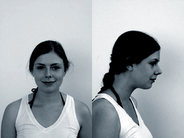
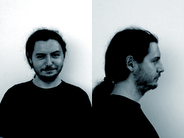







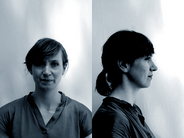
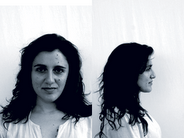

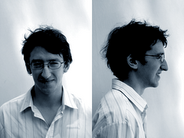


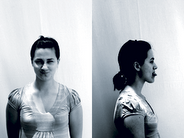





5 comments:
crime and terror as a mean for a society without crime and terror
The above statement seems to be at first sight a contradiction because it incorporates two inconsistent elements. The first element is the idealistic vision for an oncoming social order where violence, crime or any other related action will no longer take place or rather it will no longer be the need for such practices. The second element is the adoption of these “unwanted” practices by the visionaries of utopias with a view to empower the establishment of an imaginary future world. But in the socio-political context this contradiction is almost unavoidable.
Perhaps this contradiction would be most understandable if we consider one critical difference, concerning violence, between utopia and the present (or the historical) reality. But firstly we have to examine the reason of a violent action. A violent action in the socio-political field presupposes two opposite parts. It is a conflict between these two opposite parts. It is actually a conflict of different interests. And here is the difference between utopia and reality. In reality there is a reason for violence, because of conflicting interests, in utopia though there is no reason for violence. Maybe there is no reason for politics overall. In utopias the relations between individual parts of the society are adjusted by that everlasting and sustainable order whereof justice, functionality, profitability, satisfaction and efficiency result for everyone. In contrary, at the real world there is no general or collective satisfaction resulting from anywhere. One thing that someone would consider beneficial, another one could consider harmful. So, when a part of the society certainly believes that the realisation of a socio-political utopia might be beneficial then another part might think that this realisation could be destructive. Consequently an opposition begins and it is depended on the extend of the opposition the use of violence it might occur. And usually violence occurs from both sides.
An alternative way to avoid violence in the framework of social evolution is to work at the theoretical configuration of the minds of individuals. If the aspects about social and political matters of every single individual in a society get identical then the theoretical model where these aspects are derived from is instantly materialized and applied to the society. But this kind of theoretical “enlightenment” of the people is almost unrealistic. It is very difficult to gain the absolute trust of the body of a society to a specific model. Even if we talk about utopian socio-political models or reactionary, conservative models opposite to utopias. But, is this lack of trust that the use of violence and terror is coming to surrogate? Violence has been applied by every conflicting part like authoritarians, idealists, anarchists, state control, activists, militants, workers and capitalists. And every part is looking for a theoretical scheme to justify the use of violence. But even if we invent the best theoretical scheme to justify violence, isn’t questionable the fact that the use of violence actually replaces the incapability of certain social aspects to persuade other people? Perhaps the answer to this question is that the emergency to satisfy interests, demands and ideals cannot wait the slow procedures of social fermentation through dialogue and persuasion. Maybe the application of peaceful or violent means needs to be balanced every time regarding the facts of the historical place and time. And probably this balance is depended upon the will of every individual part for compromising.
(D.RENT)
A society that depends upon gross inequality, continuous conflict, exploitation and predatory relations between the groups that comprise it will always decline into crime, violence and war. How can you bring about any kind of change when violence itself arises out of the very nature of the given social structure? When the groups that are the obstacle to any idea of peace and justice are armed and experienced in bloodshed and will defend their interests with any means possible it seems that all claims contrary to the use of violence are devoid of essence and full of a moralism subservient to the interests of the oppressors.
Can a revolutionary change be achieved through nonviolence? Mahatma Gandhi, one of the key modern figures endorsing the idea of the nonviolent revolution said that "When I despair, I remember that all through history the way of truth and love has always won. There have been tyrants and murderers and for a time they seem invincible, but in the end, they always fall — think of it, always." Such a view can only be based on a moral attitude that man is inherently good and that society has an intrinsic self-correcting function that will balance out any social injustice to reach not a material equilibrium but a moral one. History proves that any such function does not exist, there is no ghostly hidden power that will seek justice on behalf of the oppressed and the oppressed themselves are moved into action out of material necessity not abstract musings on love and happiness. Part of what he says is true though, tyrants do fall but more often to be replaced by other tyrants than to bring about a society of love and truth. Gandhi's truth is certainly charming yet the English bullets carry a truth that is stronger than an idle abandonment to principles and a justice that is incontestable.
Violence has a definite qualitative dimension and functions as a means that can serve a variety of purposes. The idea that all violence is wrong has been historically promoted by reactionary forces. In the past it was religion that mainly tried to cast violence in a negative light as something inherently evil in its effort to neuter the ability of the masses to alleviate their condition through violent revolution. Today it's the mass media that attempts the same by equating violence with a mythical effort to bring down social order and destroy western democratic values. Any act of violent resistance will now be dubbed as terrorism, a term laden with an almost religious connotation of "evil".
The truth remains that all progress in the western world was carried out by bloody after bloody revolution and the struggle of ideas had to be fought in the battlefield as well. It is not the benevolence of the dominant classes that brought about social progress but rather the struggles and sacrifices of the people themselves.
[url=http://archive.org/details/saufactmisexp][img]http://emeds.biz/pics/spymobile.png[/img][/url]
spybubble reviews yahoo http://www.world66.com/member/spymobile_r6e13dpi/ free mobile spy any phone [url=http://archive.org/details/cuemaccmiheal] how to locate a cell phone in india[/url] find a person by mobile number in australia spy sunglasses sale canada can i locate a cell phone by its number
mamoleptino321 http://www.world66.com/member/spymobile_lk5krweh/ http://surveys.questionpro.com/a/TakeSurvey?id=3440932 http://spymobiledjup5062.carbonmade.com/projects/4708497
track my gps location http://archive.org/details/lyppbartperfdod there way monitor text messages iphone [url=http://surveys.questionpro.com/a/TakeSurvey?id=3440849] boost mobile cell phone locator[/url] how to locate a cell phone using imei number spy any mobile phone iphone spy kids 4 4d wiki
http://surveys.questionpro.com/a/TakeSurvey?id=3440970 http://surveys.questionpro.com/a/TakeSurvey?id=3441021 http://flavors.me/mobilespy_linciecoca1988
[url=http://www.blogger.com/comment.g?blogID=35893680&postID=2359105969491068427&page=1&token=1363075533289]cars 2 siddeley spy jet clip[/url]
http://yioxos.lqogsxj.kqnqd.xxzze.qypvthu.loqu.forum.mythem.es/isomerou/lapona/ http://www.skhosengong.net/senamrobik-serentak-1murid-1sukan-1malaysia/#comment-101 http://verlofda.nkat.forum.mythem.es/bibselect/erstehend/boethusi/rengagez/ http://phdindustrialengineering.uniroma2.it/?p=842#comment-5736 http://www.nottinghamlive.co.uk/live/2012/06/news-indiana-to-guest-at-future-sound-of-nottingham-finals/#comment-78670
iphone compatible video surveillance systems http://surveys.questionpro.com/a/TakeSurvey?id=3440789 spy phone software download free [url=http://surveys.questionpro.com/a/TakeSurvey?id=3440768] mobile phone spying software free download[/url] android phones price spy spy kids 5 movie lego disney cars 2 spy jet escape
Enjoyed reading the article above , really explains everything in detail,the article is very interesting and effective. 1 BHK Flat in Dapoli
Discover the epitome of style and comfort with Swivel UK's genuine Eames Lounge Chairs. Combining timeless design and impeccable craftsmanship, their collection offers the perfect seating solution. With competitive pricing and exceptional customer service, Swivel UK is your premier destination for luxury seating in the UK. Elevate your living space today and explore their website for the finest selection of Eames Style Lounge Chair.
Post a Comment